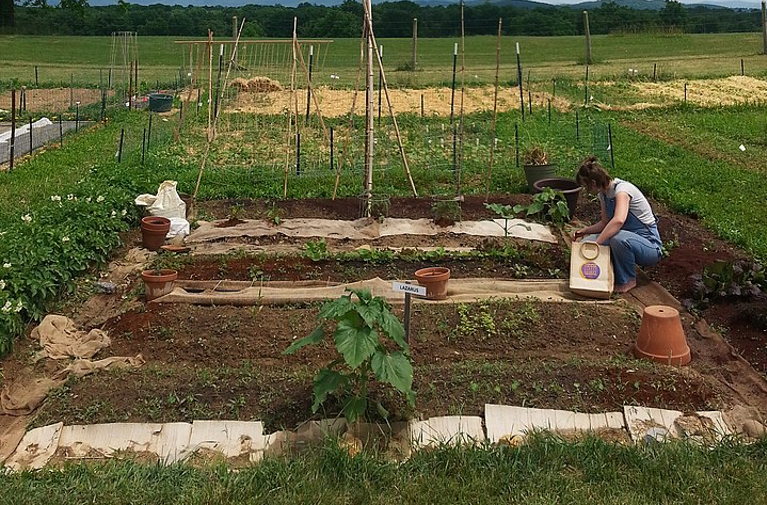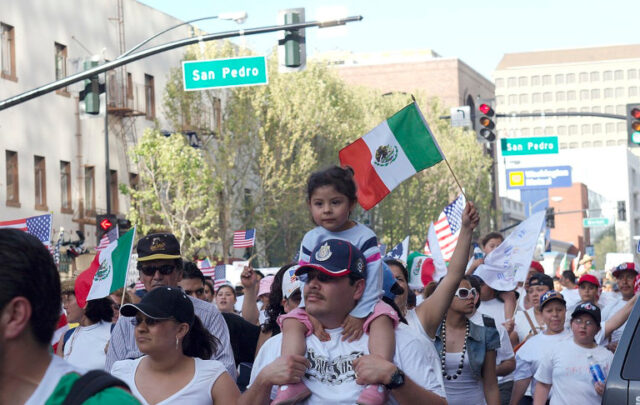As we all know, shifting away from the dominant culture of consumption can be overwhelming. Our brains are wired to stick to habits with which we’re familiar. Our friends and family have expectations of us being a certain way. But it’s clear that we need to make big changes. We need the individual actions that lead to larger societal shifts. Recently I had a chance to wrestle with just a small piece of my individual transition—making a decision about a vacation—and I wonder how others are making similar choices.
As background, a year and a half ago I “cashed out” of my contented urban environmentalist life and put the equity from my home’s appreciation into a communal living/food growing project with eight other households in a small town in central North Carolina. My 82-year old mom did the same, and together our resources allow us to live simply, but comfortably. While monthly expenses are tight, I recognize I have the luxury of money set aside for emergencies and special needs, which occasionally include travel.
Recently several incidents came together to shine a light on how I, and maybe we all, are being faced with new dilemmas about how to engage the world in which we now live. First came the courtesy call from an airline saying I had a lot of miles that were going to expire if I didn’t use them. Then just as I was learning about the work of an activist whose current projects connect nonviolence to effective climate action and cultural transition, I ran into a friend whose husband was partnering with this same activist to give a weeklong retreat immersed in Northern Ireland’s history, landscape, and peacemaking experience. I investigated and found that the timing coincided perfectly with the ending of two large projects of mine. Surely all these signs indicate this would be the trip for me!
But the nagging feeling of “it’s too late for experiences like that” kept coming to mind. How would I weigh the opportunity to interact more personally with two very thoughtful inspiring people with my work in shifting our culture to less resource consumption? Do I say no to any opportunities for renewal that aren’t on an Amtrak route?
Many readers know about ecological footprints and may have taken a quiz to quantify the land area needed for different aspects of their lifestyles including food, energy, housing and waste. When I used this with my high school students it was surprising to find even the simplest lives needed the equivalent of at least three Earths; four to five was more the norm. The question that arose occasionally, after the chagrin of complicity faded, was this: “What would a life look like that required just one Earth, and further, a life that allowed Earth’s many ecosystems to thrive?” Those conversations led to what became my overarching goal when I moved to this community: to discern and adjust my standard of living to match the capacity of one Earth.
Another conversation I often had with my students was a reframing of the golden rule. Given large population sizes and large consequences for the environment, the “Do unto others” formulation no longer feels adequate as a guide for how to behave. “Would it be okay if everyone did that?” recognizes the bigger context we need to acknowledge going forward.
So what does this have to do with deciding about an Ireland retreat? So far, pursuing a simpler life has taken the form of making most of our food from scratch with homegrown or local ingredients, buying second hand whenever possible, moving toward zero household waste (always carrying reusable hot and cold drink cups helps!), and generating more electricity for the grid than we use. But moving beyond those straightforward changes and continuing to examine other habits, habits which to a privileged middle-class person always seemed “normal,” has been both discouraging and energizing.
I want to be able to tell unborn kids of the future how I recognized the precariousness of their lives and did what I could to end the harm to and increase the health of all the Earth’s ecosystems. I dream of a world free of violence toward people and the natural world, a world where each of us uses more of our creative talents and feels an animating connection to the ancestors and the places we call home. And it seems essential to me to find that way forward with a joyful, imaginative spirit rather than focusing solely on what’s being given up. Discerning which choices are still fine, and which no longer make sense taking this long view is hard work, but work that we’re each called to do.
How are you looking at your choices differently? How are you putting in place the building blocks of more loving community and a just economy that thrives without growth? It’s past time to simply compost or carpool or recycle ever more items. Our situation now requires much more countercultural action. Have you tried to stop using products that come from mining, or food from outside your bioregion? Have you taken plastics out of your life? How are you building bridges with those who look and vote differently than you? Are you doing more than planting flowers to help restore the insect populations in your area (some studies indicate we’ve already lost 80% of insect biomass in the last 30 years)? How have you maintained relationships with people who feel judged or threatened by the changes you’re making?
Well, I didn’t choose what could have been a life-changing experience in Ireland. And I still wonder if I missed out on new skills and relationships that could have furthered my own activist work. But I did gain experience with self-restraint and weighing values that sometimes conflict. My hope for all of us is that instead of continuing down our current paths with our familiar habits, we deepen our commitment to making choices that reflect the conditions we currently face. May 2020 be the year we look back on as the point when we recognized that what initially felt like sacrifice allowed a more powerful coming together in service to generations past and future and all the beings on Earth.
Teaser photo credit: By Matthew.kowal – Own work, CC BY-SA 4.0





